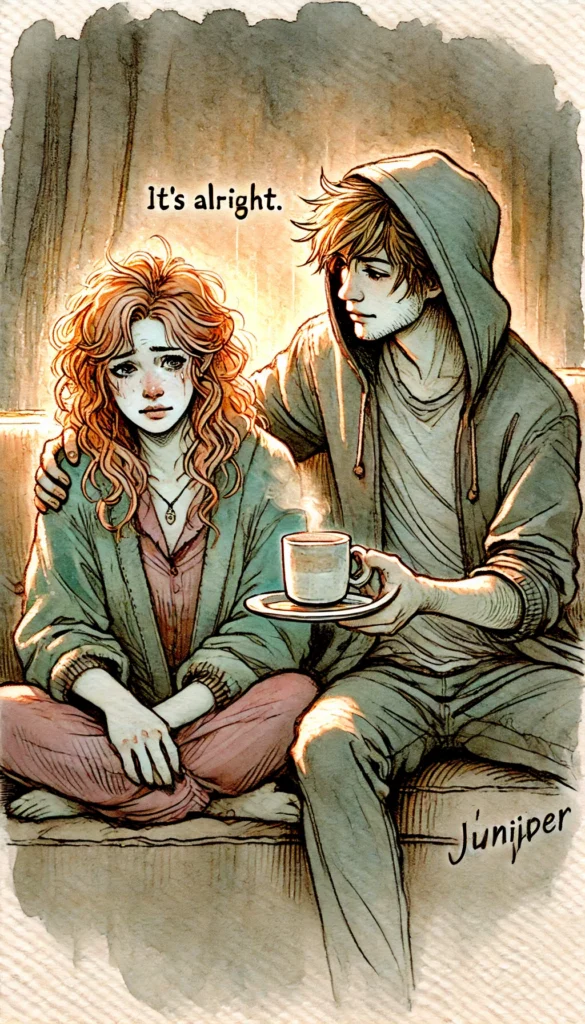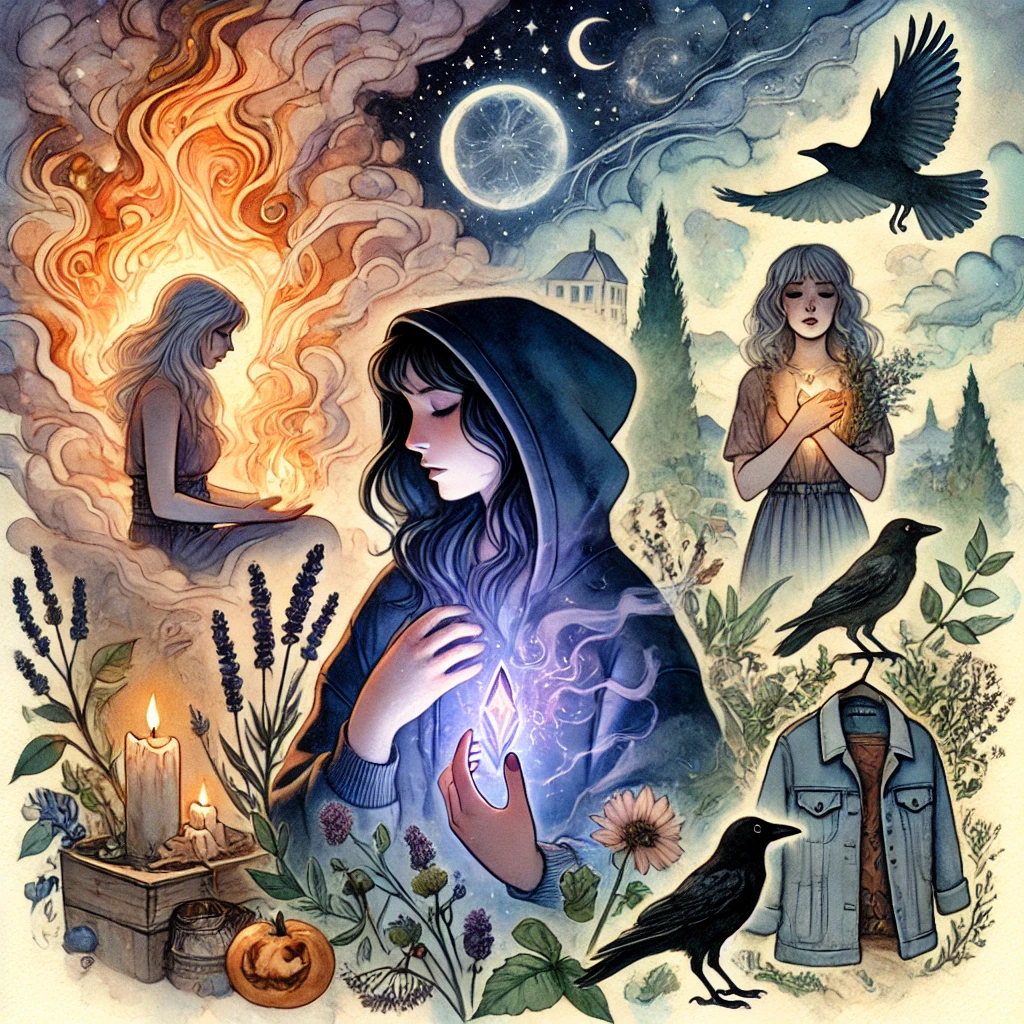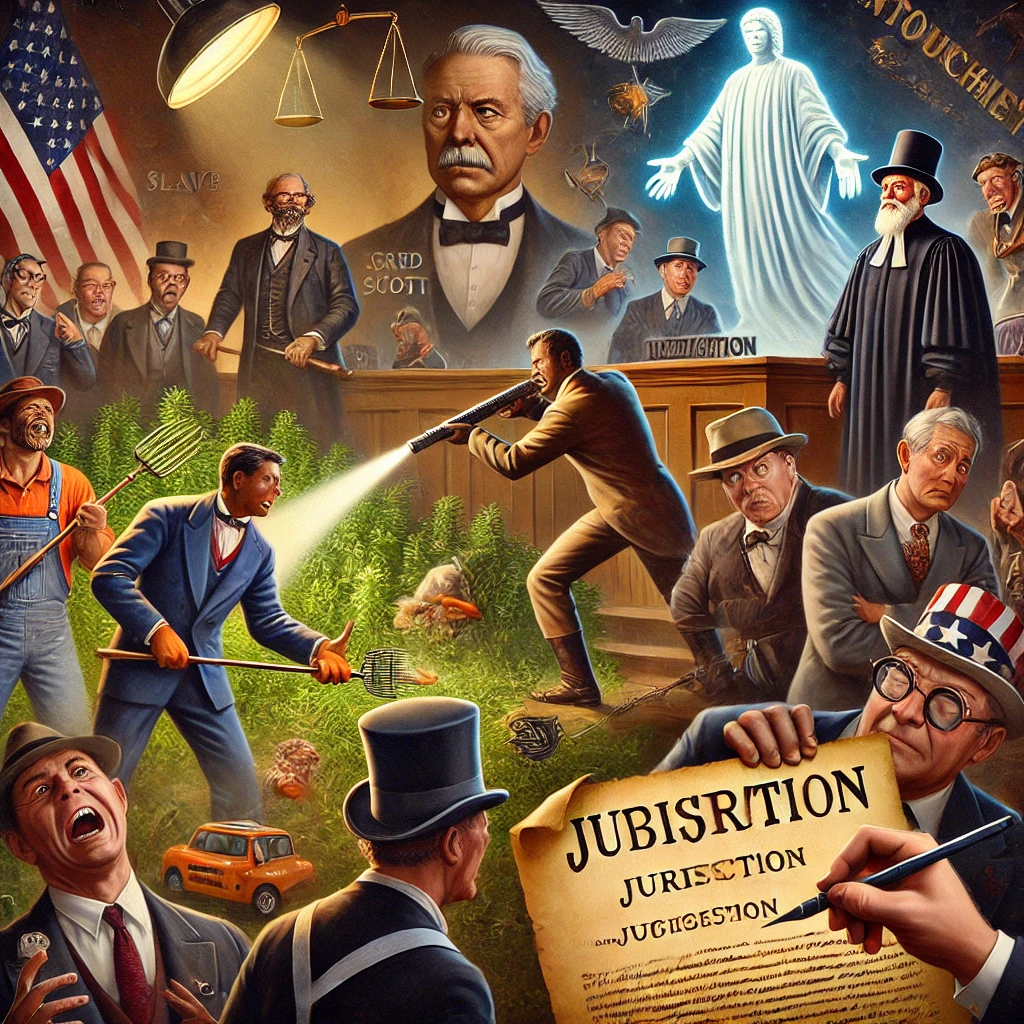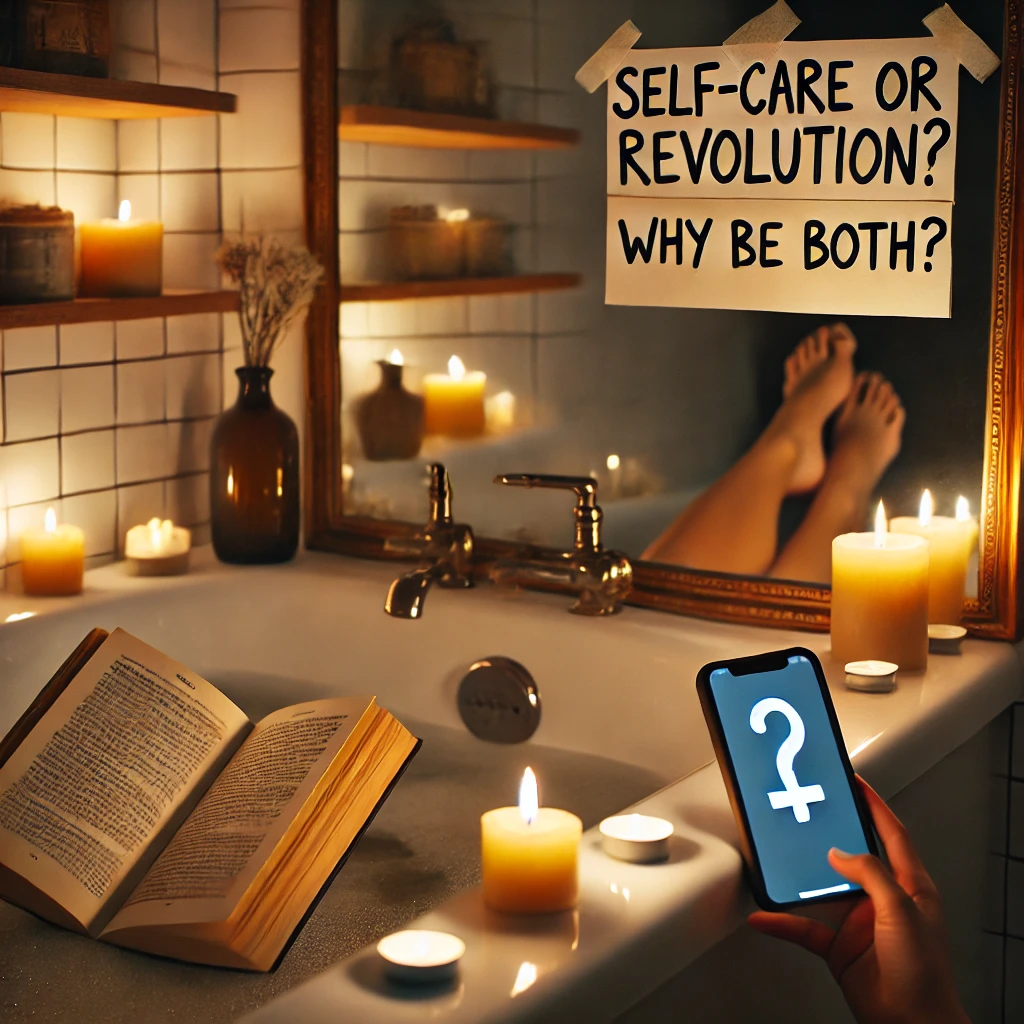(aka: “It’s Alright”)
Before we start… A Note on These Parables
This is part of the Screen Door Series.
The Cult of Brighter Days is a gloriously mismatched congregation—atheists, pagans, Buddhists, progressive Christians, cosmic agnostics, and at least one guy who swears he channels divine wisdom from raccoons.
We don’t agree on God, the afterlife, or whether pineapple belongs on metaphysical pizza. What unites us isn’t belief—it’s the shared ritual of wrestling with meaning, absurdity, and each other’s typos.
These parables are personal dispatches from inside our various reality tunnels—each one shaped by a unique screen door. Some are clear. Some are stained glass. A few are barely hanging on with duct tape and spite. But all are looking out onto the same weird lawn: Abiscoridism—a philosophy of paradox, kindness, chaos, and the occasional divine fart joke.
This isn’t a manual. It’s a potluck.
Don’t look for the one true recipe—just bring something weird and honest to the table.
NOW BACK TO THE STORY…
Once upon a time—but not the first time, and certainly not the last—a soul named Juniper decided to go back.
She’d spent the last stretch of her non-corporeal existence sipping violet tea from a horn carved by the Moon herself, lounging in a glade where time curled like ivy and gravity took the day off. The in-between wasn’t quite a place. It wasn’t Heaven, or the astral plane, or a waiting room for reincarnation. It was a surreal, sacred mess.
A forest of bioluminescent mushrooms and question-mark-shaped trees surrounded a long table littered with mismatched teacups, floating candles, and the occasional feral sugar cube. The sign above read:
“Welcome Back. Or Forward. Time is Wobbly Here.”
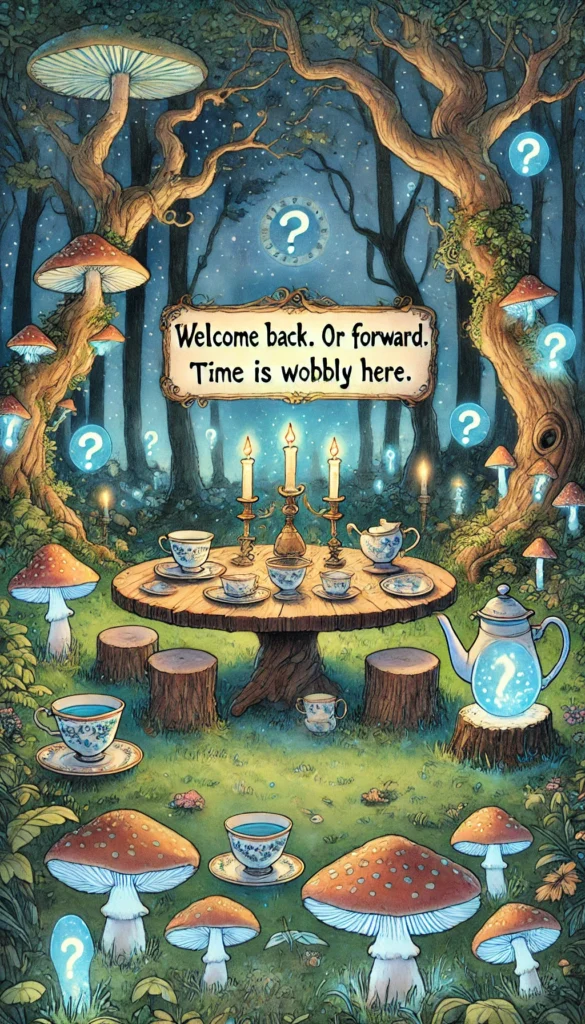
Juniper, slightly glowing, slightly annoyed, took her seat in a chair that sighed contentedly beneath her.
Across from her sat Sol. Again.
This time he wore antlers. And a sweater that smelled like lilacs and soil from deep in the forest. The eyes were always the same though—mischievous, tired, knowing. He sipped from a teacup full of starlight and steam.
“Back already?”
Juniper groaned. “Apparently I still don’t get the thing.”
“The thing?”
“The lesson. The whole cosmic syllabus. The how-to-not-burn-your-life-down guidebook. That thing.”
Sol shrugged, swatting a hovering biscuit away from his face. “Maybe this time, you’ll get a little closer.”
They clinked cups. The sugar cubes booed gently. The table leaned sideways, then changed its mind.
First Life: Fire and Wild Apples
Juniper’s first remembered life was all sparks and wildness.
She was a traveling performer in a crumbling empire—a kingdom where the roads were cracked with history and the people were desperate for distraction. Her troupe arrived with painted wagons and mismatched drums, and Juniper stepped out of the smoke like a flame given form. She danced with fire. Spoke with fire. Sometimes, it listened.
She wasn’t beautiful in the way nobles liked—too many scars, too much chaos—but the common folk adored her. She was raw magic wrapped in laughter and leather. Her performances felt like rebellion. People cheered because she made them feel alive.
Sol was part of another troupe that ran slightly more cons than performances. He was a poet with a jawline that got him into trouble and a smirk that dared people to try. He read palms, stole apples, and told fortunes that stung with truth.
They met in a border town, performing on the same night at the same festival. Their first conversation ended in yelling. Their second in dancing. Their third in silence.
They loved each other sideways—burning from a distance. Close enough to feel, too wild to stay. They fought. Reconciled. Drifted. Reappeared in each other’s paths like clockwork accidents.
In the end, Juniper died in a fire she refused to run from. A village child was trapped in a burning home, and without hesitation, she ran in. She didn’t make it out. But the child did.
That girl became a healer, carrying Juniper’s name as a blessing whispered into every salve and tea.
Sol lived decades more—sadder, wiser. He stopped performing, started listening. And every so often, just before making a coward’s choice, he’d feel her hand on his shoulder and hear her laugh in the wind.
That life’s lesson was courage.
Messy. Glorious. Inconvenient.
The kind that sets things alight and calls it holy.
Second Life: Soil and Stillness
Next, they were farmers.
Juniper was born under a waning moon in a cottage that smelled like rosemary and old wood. Sol was her older brother this time—quiet, gentle, and thoughtful in ways that made animals trust him and strangers feel seen.
Sol was a boy of patience. He talked to the earth and sometimes got answers. He believed in small things: well-baked bread, properly tended rows, and looking someone in the eyes when they were falling apart.
Juniper, meanwhile, wanted more.
She read forbidden books. Climbed trees for stargazing. Fell in love with people she thought she could fix. She wanted to fix the whole damn world, honestly—especially the broken parts.
Sol was her anchor. When she came home crying after another heartbreak, he didn’t offer advice. He just set down tea and let her rage. When she brought home stray animals or weird herbs, he asked if they had names yet.
When he got sick, Juniper went to war with reality. She tried every root, every chant, every bargain with stars. But Sol died anyway. Peacefully. Too young.
She screamed at the sky. Tore pages from her books. Wouldn’t speak to anyone for weeks.
But then one morning, she walked into the garden and sat. Just sat. And listened. And in that stillness, something in her started to mend.
She became a midwife—not just for births, but for death. For grief. For change. She held hands and stories. She stopped fixing. She started holding.
Sometimes she’d hear Sol’s voice in bees. Sometimes, his smile in the eyes of a newborn. And when she was about to rush in again, to fix someone who didn’t ask for it, she’d feel him in her bones saying, “Wait.”
That life’s lesson was stillness.
And trust.
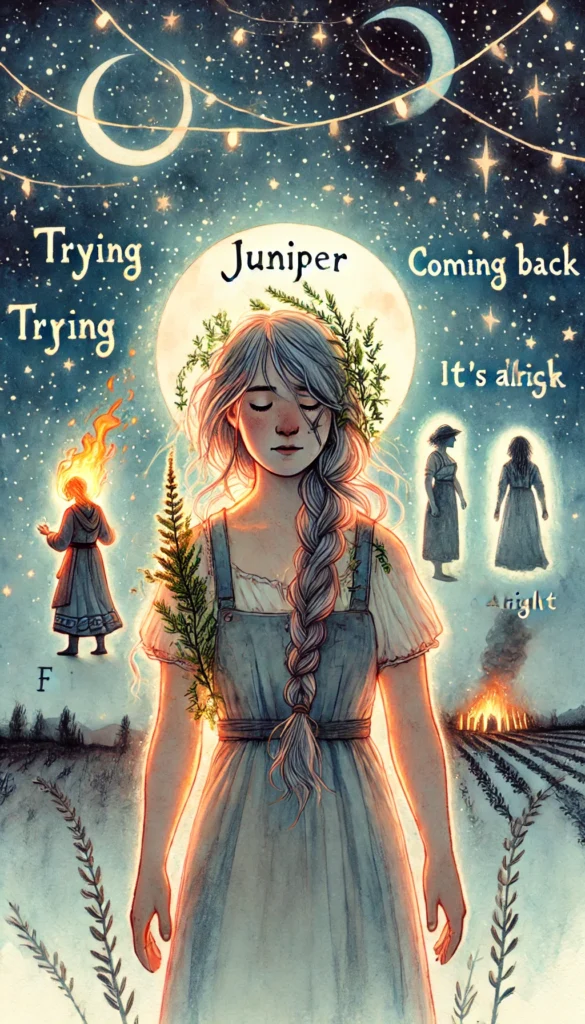
Third Life: This One
This time, Juniper was born into a world of tech addiction, mental health memes, and spiritual influencer grifters selling healing crystals at 400% markup.
She worked at a community center—one of those half-funded, over-worked places full of broken furniture and beautiful people trying their damnedest. She ran art nights for teenagers who carried scars in their eyes. She organized food drives. She taught people how to see magic in mundane things.
She tried to heal the world. Again. Still, it didn’t go as planned.
She dated five emotionally unavailable guitar players. Each wore rings they couldn’t afford and made promises they never meant. She thought she could love them into wholeness. Instead, she forgot how to sleep.
She ghosted a friend who was grieving. They needed her. She disappeared instead—told herself she was too busy. It haunted her more than the grief would have.
She stole a crystal from a metaphysical shop. Justified it as “energy exchange.” Buried it in her garden three years later with a handwritten apology that said, “My bad.”
She cried in public. A lot. Grocery stores. Bus stops. One time during a dental cleaning.
Sol was her younger brother in this life—this time a pot-smoking stoner with a laugh like gravel and a heart like a weighted blanket. He didn’t “do emotions,” but he always knew when she needed a stupid movie, a shared edible, and someone to say “It’s alright” like it was a prayer.
They weren’t perfect. Sometimes they fought. Sometimes she avoided him because she was ashamed of the ways he refused to conform.
But Sol always came back. And he always said it.
“It’s alright.”
And somehow, it was. Or at least it would be.
Then he died. An accident. Stupid. Fast. No warning. No closure.
Juniper shattered.
Grief tasted like metal and silence. For months she barely functioned, mechanically showing up for others while unraveling in private. But eventually, she started noticing things.
A smell—weed smoke and incense—wafting when no one was around. His laugh, in the caw of a crow. His old t-shirt appearing on a thrift store rack across town. And dreams.
Dreams where they sat at a tea table in the woods, and he looked at her like she wasn’t broken.
And always, he said it: “It’s alright.”
Eventually, she started saying it too.
She apologized to people she hurt. Made peace with the guitar players. Took breaks. Asked for help. Grew tomatoes. Stopped trying to save everyone and started showing up.
Not to be perfect.
But to be present.
The lesson this time was boundaries.
And forgiveness.
And not giving your whole soul to people just because they’re sad and pretty.
The Return
When Juniper finally passed—older than expected, softer than she feared—she found herself once more at the tea table.
Sol was there. Of course. This time in a poncho made of constellations and a crown of dandelions. He handed her a cup.
“Did you get the thing this time?”
Juniper sipped. It tasted like wild honey and rain.
“Closer,” she said.
He smiled.
“It’s alright.”
They toasted.
The trees swayed with laughter. A fae with a mischievous grin stole a spoon. The universe exhaled.
Because this wasn’t the end.
It never was.
The point wasn’t to be perfect.
Or to arrive.
Or to transcend.
The point was to try.
To fail.
To come back.
To learn.
To love.
To laugh.
To whisper “It’s alright”
to your messy, beautiful,
gloriously unfinished self.
